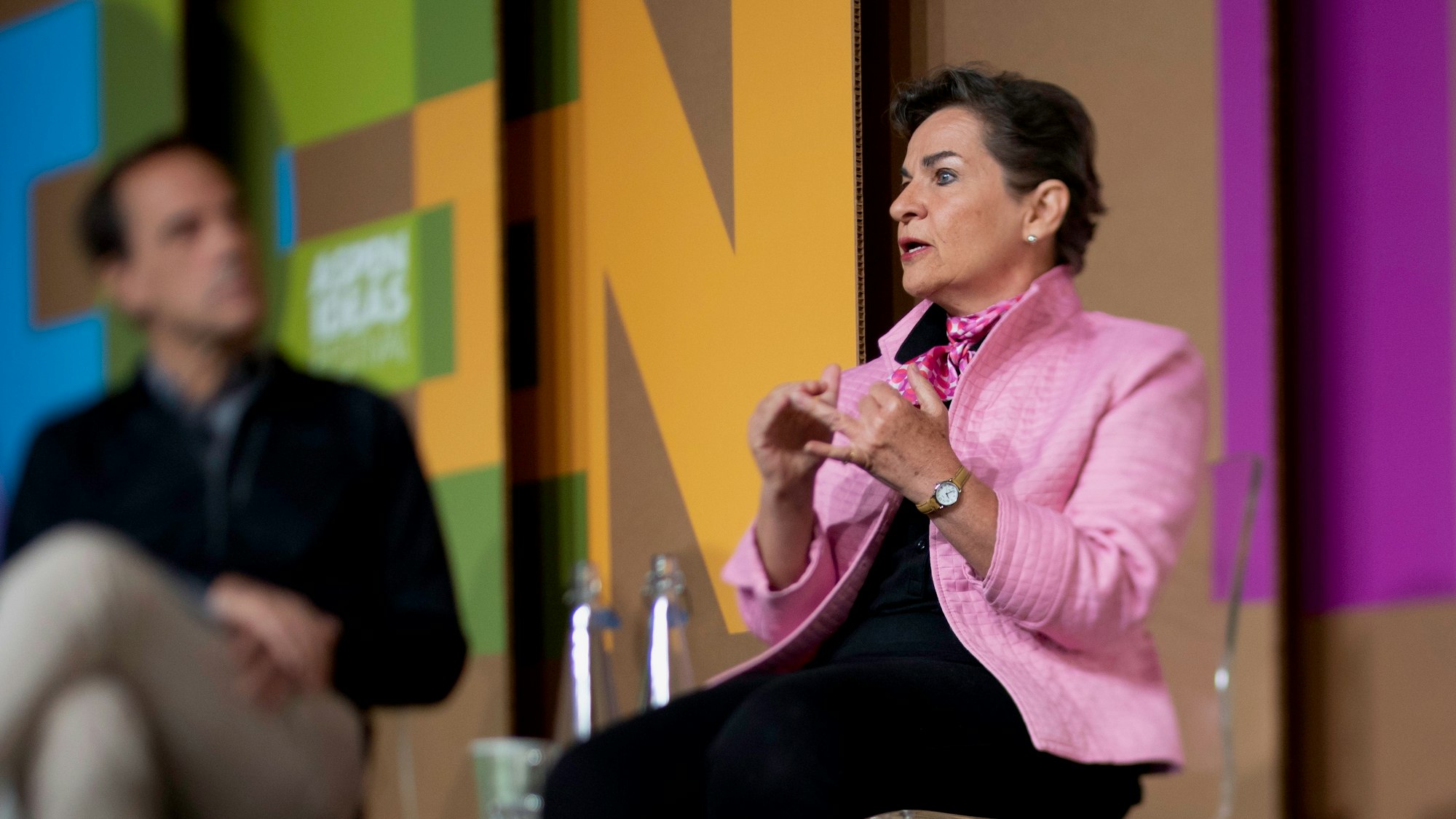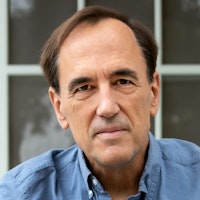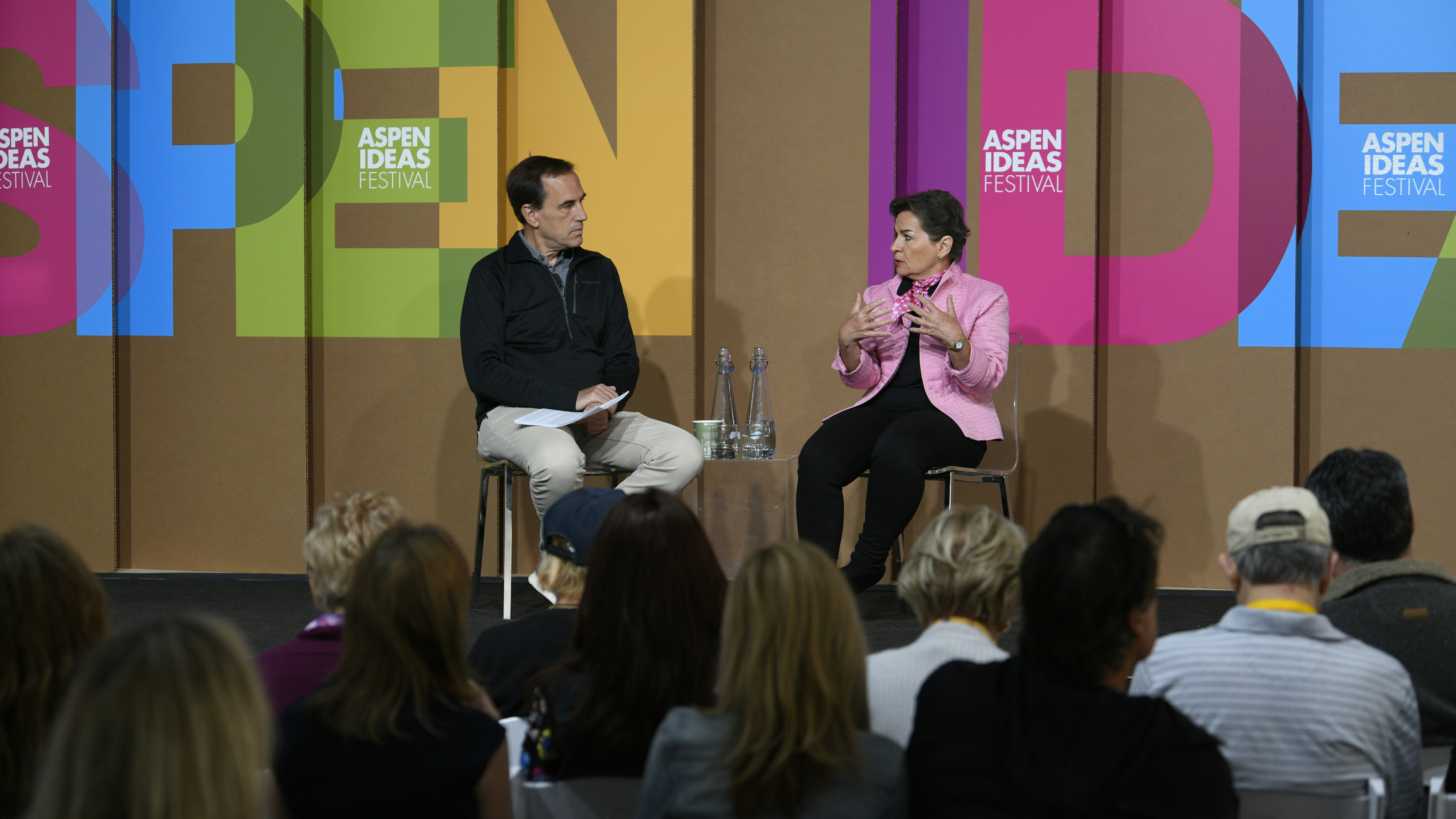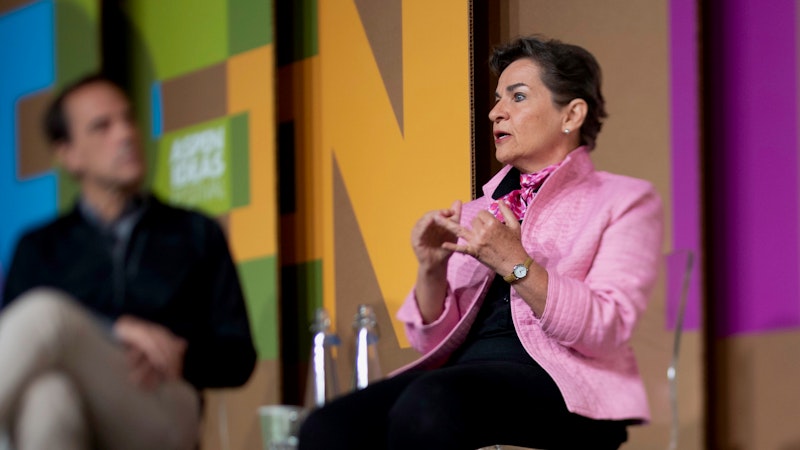
A 'Stubborn Optimist' in the Face of Climate Change
Setup
As secretariat of the UN Framework Convention on Climate Change, Costa Rican diplomat Christiana Figueres led the global adoption of the Paris Agreement in 2015. But she was not always so hopeful, and recalls a turning point as she consciously shifted her attitude from despair to stubborn optimism. Jeff Goodell, author of The Water Will Come sits down with Figueres to reveal how individuals can harness hope and take action as they face the seemingly impossible.
- 2018 Festival
- Health
- Environment
Climate action starts with self-interest
How do you get a country to act on climate change? According to Christiana Figueres, you have to make it worth their while. There’s no top-down, universal fix for climate change. Each country must decide that it’s in their best interest to act on climate change, and those interests look radically different across the globe.
When Figueres, as secretariat of the UN Framework Convention on Climate Change, negotiated with countries towards ratifying the Paris Agreement on climate change, this is where she started. What does each country, with its own unique set of circumstances, have to gain by cutting carbon emissions or transforming their energy sectors? It was her job to help countries answer those questions.
How does it work?
The glass-half-full-approach to dealing with climate change
Author and journalist Jeff Goodell has a hard time not being pessimistic about the future effects of climate change, but Figueres explains why optimism is the only truly responsible way to address climate change.
-
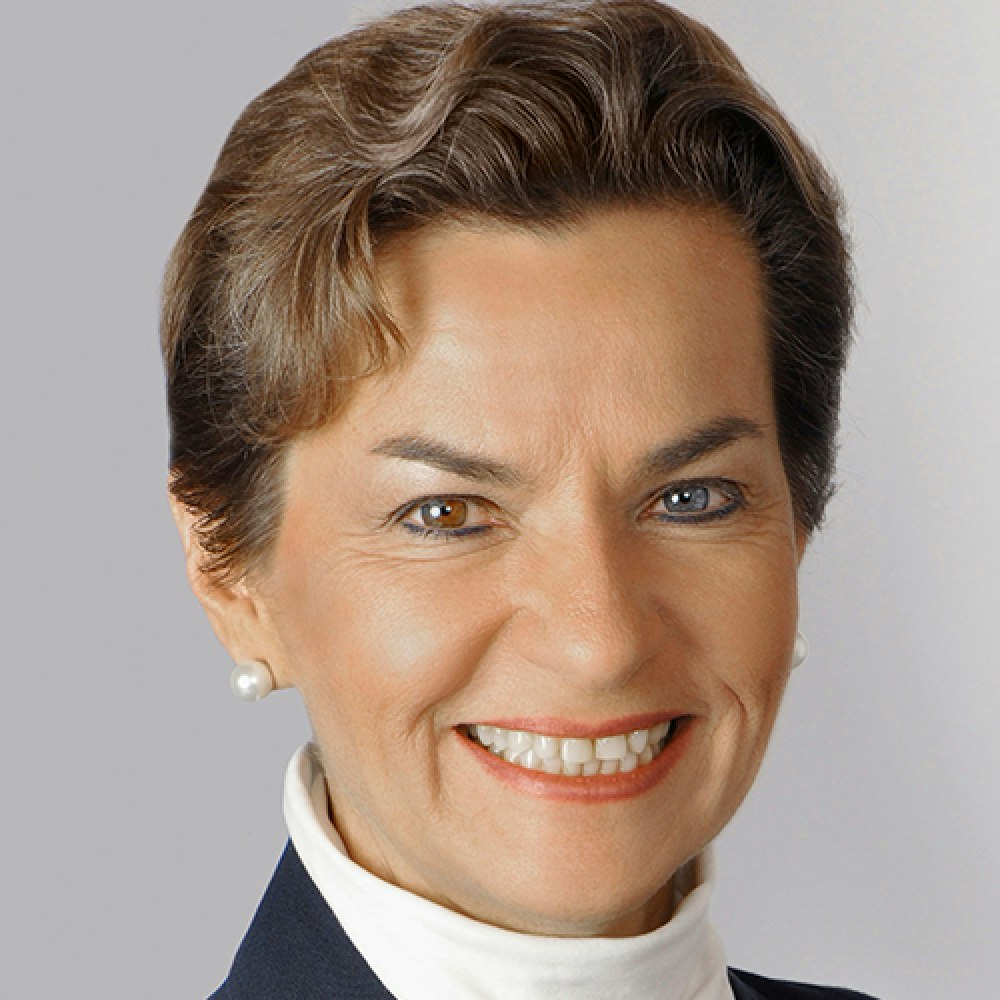
Christiana Figueres: Do you know of any challenge that mankind has had in the history of humankind that was actually successful in its achievement that started out with pessimism, that started out with defeatism? There isn’t. So optimism is a choice. And in as much as we create that vision and that future, then we begin to unleash an enormous amount of human potential and human dedication and determination to make that future a reality. That is why I am optimistic. Not because I am in la-la land.
Despite negative forecasts, there’s reason to stay hopeful
Goodell characterizes the Paris Agreement as “limp,” with the US withdrawal from the Agreement in 2017 signaling a massive deprioritization of climate action. But Figueres counters with examples from India and China that make the case for persistent optimism:
Climate action must protect the most vulnerable
In a moment of optimism, Goodell agrees that human ingenuity and creativity will drive human adaptation to many of climate change’s dire effects. Will that adaptation benefit all of humanity though? Figueres doesn’t think so.
Big IdeaI think you’re absolutely right that we would be able to redesign our future and the way that we live on this planet if we get above 2 degrees for the top X percent of population from a financial point of view. But 70 percent of the population on this world will not benefit from that, and hence I think that is immoral and unacceptable.Christiana Figueres
The majority of countries make no meaningful contribution to greenhouse gas emissions, yet those who are least responsible for climate change will most likely shoulder the biggest burdens.
What does this look like?
Learn More
Additional Information
Resources
Mission 2020
The Woman Who Could Stop Climate Change in the New Yorker
Explore More
Health

Take a sneak peek at some of the big thinkers and innovative doers who will take the stage at Aspen Ideas: Health from June 20-23, 2024!

At Aspen Ideas: Climate 2024, the world's most ambitious climate problem solvers came together in Miami Beach to address our collective future on this planet. Watch highlights...

Museums are typically testaments to the past, but a growing number are using exhibitions to shape our response to the future—specifically to climate change. Museum leaders wil...

Coastal cities are utilizing innovative solutions to adapt to extreme weather and rising sea levels, becoming more resilient in the face of climate change. From innovative des...

Storytelling, music, animation, and podcasts! Watch the magic of innovative content being born as creatives pitch their ideas to a panel of Planet Media judges, each hoping to...
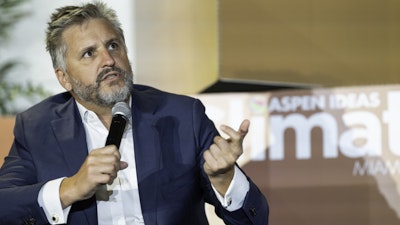
The impacts of the climate emergency are felt by populations worldwide, and they increasingly shape whether, where, and how people migrate. Mayors, city governments, non-profi...

Katharine Hayhoe is an atmospheric scientist and Chief Scientist for The Nature Conservancy. Ahead of Aspen Ideas: Climate next week, we caught up with Dr. Hayhoe to discuss t...

Since 2014, Aspen Ideas: Health has welcomed over 700 inspiring women leaders to our stages to share their bold approaches to better health. In honor of Women's History Month,...

During Aspen Ideas: Health 2023, four innovators shared how they are using new technologies to reimagine the common health devices we use to treat patients and improve their q...

How is constitutional law being harnessed to address climate change? Ahead of Aspen Ideas: Climate, we caught up with Andrea Rodgers, Senior Attorney at Our Children's Trust,...


After millennia of human existence, we’re still figuring out and talking constantly about one of our most fundamental behaviors – sex. Despite the sexual revolution of the 60s...

As Aspen Ideas: Health wraps-up its 10th anniversary year, we're excited to share the ten most-watched sessions from the event. These conversations with artists, advocates, in...

Rose Kirk is the Chief Corporate Social Responsibility Officer for Verizon. We caught up with her about tech-based climate solutions and why digital skills and connectivity ar...


When Duke divinity school professor Kate Bowler wrote her best-selling memoir, “Everything Happens for a Reason (and Other Lies I’ve Loved),” she was grappling with the conseq...


For adults, the pressure to drink at social engagements, work events, restaurants or almost anywhere outside the home can feel constant. Recent research has found that “no amo...

Whether expressed through systems that are easy to navigate, devices that are friendly to their users, and spaces that are pleasing to the eye, thoughtful design can break dow...

At Aspen Ideas: Climate 2023, we dug into some of the biggest environmental issues of our time, from sea level rise and deforestation to food insecurity and energy policy, and...

Your first look at the leaders, innovators, policymakers, and luminaries joining us for Aspen Ideas: Climate 2024. Don't wait to hear from these extraordinary speakers — early...

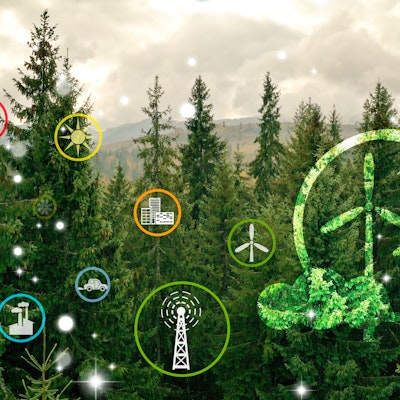
Climate change catastrophes are already happening with increasing regularity, and it’s clear we need to take action. The Biden administration has set a target of zero carbon e...


A technological future where our brain waves could be monitored and our thoughts decoded and analyzed — sometimes against our will — is not as far away as we think. But our ex...


